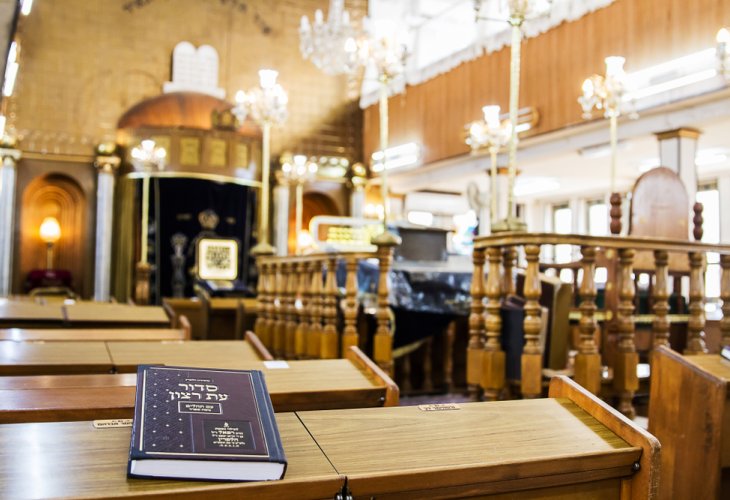The Panic That Led to Tragedy in the Synagogue
During a special prayer, the entire Jewish community of Metz gathered closely in the synagogue. Suddenly, amidst the emotional rendition by the cantor, a loud noise echoed "as if a great building was collapsing."
 (Photo: shutterstock)
(Photo: shutterstock)Five months of war, and we're trying to adjust, but nights are still sleepless for many. So much loss, so many missing and wounded, and once again the alarm sounds of rockets, attacks—may Hashem have mercy and protect us.
Yet, we must be cautious not to succumb to unnecessary panic, adding strain to an already tense situation.
An intriguing and chilling story is shared by Glikl of Hameln. On Shavuot of 1715, in the city of Metz, the entire community gathered to listen to the famed cantor, Rabbi Jukli of Rishia. Rabbi Jukli was a traveling cantor, gracing different towns that invited him. In honor of his special prayer, the entire Jewish community of Metz squeezed into the synagogue.
Suddenly, in the midst of the stirring cantorial, a loud noise echoed in the synagogue "as if a great building was collapsing." The men feared the synagogue's dome was about to fall and called urgently for their wives to hurry down. There were two women's galleries, upper and lower. In the upper gallery, chaos ensued, and the women rushed to descend and save themselves: "In their haste each tried to go before the other, and heaven help us, they fell on top of each other... more than fifty women lay on the stairs, entangled as if glued together, the living with the dead... men came to the Jewish street with ladders and axes to bring the women down from the upper gallery."
The writer, Glikl, was sitting in the lower gallery and did not hear the loud blast, only the commotion of the women above. As she helped her pregnant daughter Esther down the five or six stairs at the exit of the lower gallery, Glikl fell on the last step: "In the spot where I lay, all the men who wanted to help the women on the upper gallery stairs had to pass, and if just another moment had passed, I would have been trampled. But finally, the men saw me and helped me up."
In the end, tragically, six women from the Metz community were trampled to death, although there was no actual reason for alarm—nothing fell from the ceiling, and there was no need to rush or crowd.
Glikl writes that in her opinion, this disaster happened due to sins committed on Simchat Torah, about eight months before. After the Torah was raised as customary, a quarrel erupted among the women, tearing headscarves off each other's heads, leaving them bareheaded in the women's gallery. This led the men in the men's section to also start arguing and fighting. Those involved in the scuffle were punished by the community leaders, but the desecration of the synagogue demanded its own toll, at least according to Glikl.
We need to be extremely careful not to fall into unnecessary panic, to follow instructions, and act with reason. By Hashem's grace, may we be redeemed by Purim from this war and from all the enemies who wish to destroy us.

